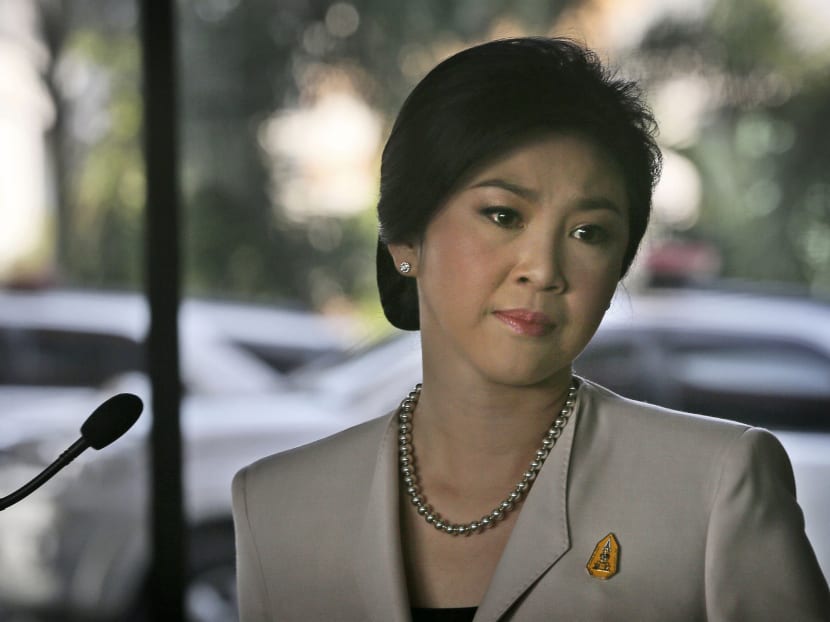Thai PM refuses to resign
BANGKOK — Thai Prime Minister Yingluck Shinawatra yesterday refused to resign and allow an appointed government to run the country as Thailand prepares for new elections on Feb 2, despite mass protests to force her to step down within 24 hours.

Thailand's Prime Minister Yingluck Shinawatra gets emotional after speaking at a press conference, in Bangkok, Thailand on Dec 10, 2013. Photo: AP
BANGKOK — Thai Prime Minister Yingluck Shinawatra yesterday refused to resign and allow an appointed government to run the country as Thailand prepares for new elections on Feb 2, despite mass protests to force her to step down within 24 hours.
“I cannot retreat any further,” she said on national television with a shaking voice and tear-filled eyes (picture). “Please be fair to me.”
Over 150,000 people poured into the streets of Bangkok the previous day, ignoring her move to dissolve Parliament and call a fresh vote in a bid to defuse the ongoing political crisis.
Former Deputy Prime Minister and protest leader Suthep Thaugsuban said calling an election was not enough and that Ms Yingluck, 46, should step down and remove herself from politics. Protesters accuse Ms Yingluck of working as a proxy for her brother, former leader Thaksin Shinawatra, who was ousted in a military coup in 2006.
Ms Yingluck said yesterday that she must do her duty as a caretaker Prime Minister according to the Constitution, adding that a new leader can be installed after the planned polls.
Thaksin is still popular in many parts of Thailand for his pro-poor policies and his lingering appeal helped Ms Yingluck win a landslide victory in elections in 2011.
Since then, the Shinawatra clan has expanded its populist policies to include a multi-billion-dollar subsidy for rice farmers and tax rebates for first-time car and home buyers in a bid to stimulate the domestic consumer economy.
Ms Yingluck’s opponents describe these policies as being akin to vote-buying and are seeking to eradicate the influence of Thaksin, who is living in Dubai to avoid imprisonment on a corruption conviction which he says is politically motivated. Some demonstrators taking part in Monday’s mass protests said Ms Yingluck should consider leaving the country, too.
When the ruling Puea Thai Party attempted to pass an amnesty law through Parliament last month that would have exonerated Thaksin of his corruption conviction and cleared opposition figures of politically-linked charges, tens of thousands of people took to Bangkok’s streets in protest.
Ms Yingluck quickly withdrew the plan, but the protesters stepped up their campaign and began pushing for her resignation and the creation of an unelected, appointed people’s assembly, leaving one of South-east Asia’s most important economies trapped in what appears to be a stalemate.
By mid-afternoon yesterday, only 6,000 protesters were around the Government House in Bangkok, where Ms Yingluck’s office is located. Yesterday was a public holiday in Thailand and Ms Yingluck attended a ceremony to mark Constitution Day in Parliament. About 1,500 protesters turned up, said the police.
There are now questions as to whether the election will go ahead as Ms Yingluck planned. Lawmakers from the opposition Democrat Party resigned from Parliament on Sunday and its leaders have not decided whether to take part in the election.
Agencies






